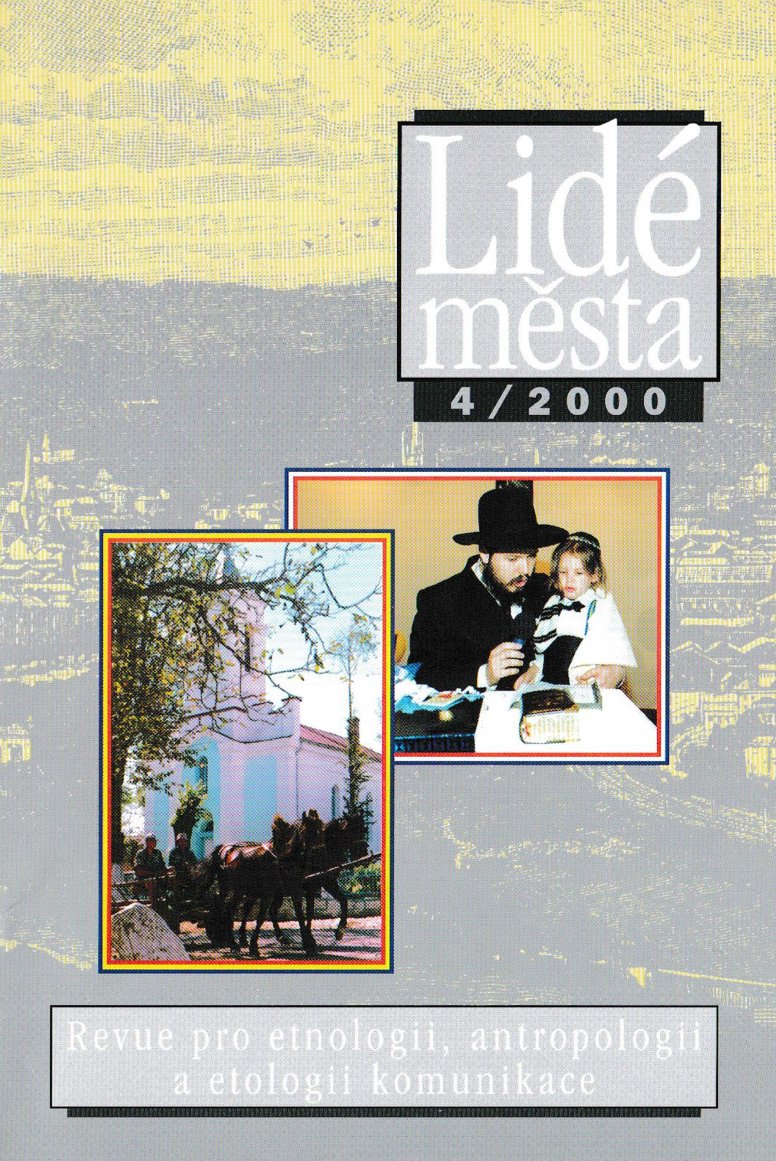Peroutkova Přítomnost, židé a Židé
(1924-1939)
DOI:
https://doi.org/10.14712/12128112.4062Abstrakt
The presented study is an attempt at interpreting the relationship between Czech society and Jews, both the "ethnic" and "religious" ones, the Jewish identity and their problems upon the background of the development of the 1st and 2nd republics. While the former regime distinguished itself with a relatively liberal approach to the Jewish fellow citizens and a rapid push of anti-Semltism to the margin of society, the "2nd republic" introduced a number of anti-Jewish measures as early as January 1939. Th post-Munich regime was largely characteristic with a growing anti-Jewish hatred emanating "from below". The analysis used as a basic source Přítomnost, a political and cultural weekly with opinions close to the Castle Group. The periodical was marked with its ability to adopt a non-partisan, broad and multilateral look at the contemporary situation as well as a fine ability to highlight the most important contemporary questions and which displayed a will for a committed service to the first-republic democracy. The genesis of the Jewish issue in Přítomnost only reached a turning point in the 1930s; until then it had a form of an opinion clash between the representatives of the Czech-Jewish and Zionist movements. The argument was dominated by mutual accusations of allegedly being the biggest enemy of internal loyalty to the state. Assimilated Jews, who still called themselves Jews-Czechs or Czechs of the Jewish belief, and Zionists, committed and proud representatives of the Jewish nation reproduced in their arguments the antagonism between three identities: the Jewishness, the Czech (or Czechoslovak) national aspirations and the German national aspirations. Peroutka himself was an advocate of Czech-Jewish assimilation. Starting the 1930s Přítomnost was dominated by the theme of German anti-Semitism, its echo in the traditional dispute between advocates of assimilation and Zionists (until 1933), the growing influence of Hitlerism on the domestic German and Czech nationalisms as well as the topic of the German and Austrian emigration with its Jewish part (after 1934). All of these contributions confirmed the truthfulness of a major Czech self-stereotype of Czechoslovakia as an island of peace and freedom, although anti-Semitism rapidly spread in the North Bohemian borderland with its majority German population and the Prague-based German university. Despite this Přítomnost reacted to the altered political situation and it voiced a more reserved stance in its criticism of the German Reich since 1936. In early 1938 Peroutka, who was realistically considering the extent of tolerance of Czech society, warned the Jewish fellow citizens of the demand of solidarity with Jewish refugees. A real crisis only appeared next February. In the atmosphere of the "policy of national egoism", the strategy Peroutka had espoused, Přítomnost tried to protect Czech Jews, an integral part of the Czech nation. However, on evident tactical grounds Peroutka openly gave up responsibility for domestic German Jewry. As a result, the weekly slid even before March 15, 1939 from a broad democratic platform to a much narrower basis of national survival. However, it certainly did not join the strong contemporary anti-Semitic current, as it is sometimes alleged.
Stahování
Publikováno
Jak citovat
Číslo
Sekce
Licence

Tato práce je licencována pod Mezinárodní licencí Creative Commons Attribution-NonCommercial-NoDerivatives 4.0.


